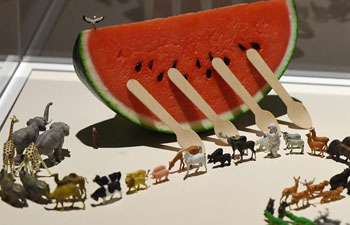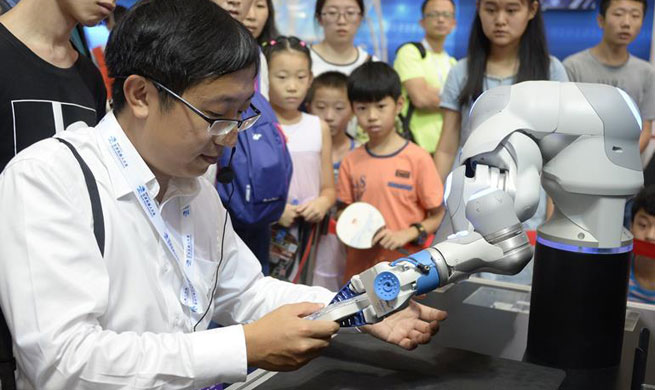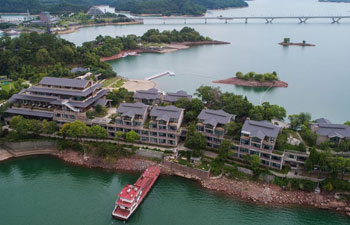TOKYO, Aug. 25 (Xinhua) -- Japan's core consumer prices increased in July from a year earlier owing to higher energy prices, the government said in a report on Friday.
According to the Ministry of Internal Affairs and Communications, Japan's core consumer price index, which excludes the cost of fresh food, increased 0.5 percent year on year, marking the seventh successive month of increase.
The ministry said that the price index in the recording period was lifted by gasoline and electricity as prices for crude oil continued to chart an upward trajectory on a year-on-year basis.
This compares to a 0.4 percent rise a month earlier, with the latest reading in line with median economists' expectations and marking the highest reading since March 2015.
Despite the increase in July, however, the Bank of Japan's (BOJ) lofty 2 percent inflation target remains elusive, economists here said.
Headline CPI gained 0.4 percent on year, the ministry said, maintaining its upward trajectory for the past three months, owing to a 21.1 percent climb in kerosene prices.
Food prices edged up 0.6 percent in the recording period from 0.8 percent a month earlier, while utilities leapt 4.3 percent, adding 0.8 percent from June.
With fresh food and energy prices excluded for their volatility, CPI rose 0.1 percent, marking the first increase in five months, the ministry's data showed.
The core CPI for Tokyo's 23 wards, which is released a month before the nationwide data and is widely regarded as an indicator of future price moves, increased 0.4 percent in August from a year earlier, owing to rising prices for clothing and medical fees, the ministry said.
CPI is a measure estimating the average price of consumer goods and services purchased by households.
A consumer price index measures a price change for a constant market basket of goods and services from one period to the next within the same area, city, region, or nation.
The index is determined by measuring the price of a standard group of goods meant to represent the typical "market basket" of a typical urban consumer.
In terms of Japan's inflation rate, the Bank of Japan has again lowered its forecast of 1.4 percent for the year to March 2018 to 1.1 percent.
The central bank has also cut its forecast from 1.7 percent to 1.5 percent for the year to March 2019.
The BOJ had set itself a 2 percent inflation goal to be achieved in as many years.
But the lofty target, remains some way off, with economists here believing the deadline will continue to be delayed, while interim forecasts repeatedly trimmed as the bank's reflationary efforts have struggled to gain momentum.
"The figures confirm that a modest up tick in inflation is continuing. But it's not anywhere near where the Bank of Japan wants it. The economy is good, but I think it will still be difficult for inflation to pick up much more. Meeting the BOJ's 2019 target will be difficult," said Masaki Kuwahara, senior economist at Nomura Securities Co.

















